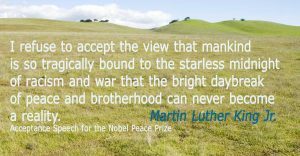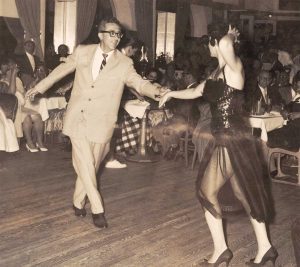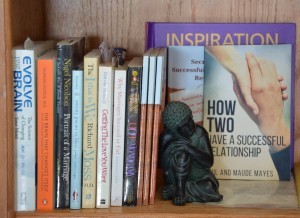Maude Mayes's Blog: Secrets of a Successful Relationship Revealed, page 98
July 17, 2016
Peace in Your Relationship and the World
 We have written many times about the extraordinary peaceful and passionate nature of our relationship, and in fact our primary goal in all our writings, books and blogs is to spread peace one relationship at a time.
We have written many times about the extraordinary peaceful and passionate nature of our relationship, and in fact our primary goal in all our writings, books and blogs is to spread peace one relationship at a time.
In these very disturbing times, it seems a good moment to focus on this central part of our message. We have a direct experience of peace together that neither of us has known about previously, except as an image or goal. When we speak of this we are not referring simply to the absence of conflict.
For us, peace is not a void described by the absence of conflict, anger or war. Peace is an actual experience. It is filled with calm, assurance of goodness, acute awareness of presence, acceptance of what is, joy and overflowing love. “How Two: Have a Successful Relationship”
When you’re attacked, whether verbally, physically or emotionally, the natural responses are fight, flight or freeze. Fight, in particular, will only escalate the situation. This is probably all too familiar to you. How can you avoid this?
Awareness, consciousness, attention – whatever you want to call it – is part of what you need to short-circuit these responses. The other part is recognizing that having emotions and acting on them are two different things. In other words, be angry but don’t throw the dishes. Being able to say to yourself “That makes me angry” or “That makes me scared” without reacting is a way to come from an inner center of peace. This is the same place you reach in meditation, which is one of the reasons why the latter is so helpful in life.
All that is about dealing with your responses in isolation. The next step is empathy, understanding, listening – trying to hear and understand where your partner is coming from, what they are reacting to, why they are behaving that way – that is the route towards finding a resolution that fits both of your emotional needs.
Peace is a conscious choice. John Denver
Practicing peace takes a decision to do so. The tools can be learned, but the belief and the intention have to be there. Peace can be the foundation and underpinning of all your interactions, but only if you choose for it to be so. This goes for your close relationships and also for your response to the bigger movements and issues in the world.
If you are to live and grow into peaceful relating, then it is necessary to have forbearance and to hold to the well-spring of peace as your approach. You cannot allow yourself to react and to be pulled into other forms of being together. This is true of a personal relationship and on a global scale as well.
Stay the course and pull others in with you, rather than the other way around. When acting from truth and love, you gain power and authority. You can use it to change the world into the peaceful loving place you know it can be.


July 13, 2016
Successful Relationships Reading Corner
This week’s blog is on 5 ways to stop arguments in your relationship. Here are some further articles about this.
How to Stop Arguing “Every couple–no matter how well they communicate in a relationship–has times where they disagree. At the same time, this doesn’t have to turn into a fight! How to stop arguing is one of the biggest relaitonship problems many marriages face. Luckily, you can learn to stop fighting by mastering key communication skills. ”
How to Stop Arguing and Actually Solve Your Relationship Problems “When you first get upset or angry with your significant other, there are almost always two problems: your emotions and the actual problem. For example, say you’re frustrated with your partner for not doing the dishes. You now have two problems to solve: the dishes need to be done and you need to no longer be upset with your partner for not doing them.”
5 Ways to Stop an Argument in Less Than a Minute “The trouble with arguments is that they don’t work. I’m not talking about a good debate, where you have some great ideas, and they clash, and you start a healthy back-and-forth that feels fun. I mean arguments – where tension starts to rise, responses start to get personal, and you go around in circles without getting anywhere.”


July 10, 2016
5 Ways to Stop Arguments in Your Relationship
 Have you ever placed one hand flat on the table and smashed it hard with a hammer? Thought not, and that was because you chose not to.
Have you ever placed one hand flat on the table and smashed it hard with a hammer? Thought not, and that was because you chose not to.
That is the same reason we never argue – because we choose not to. We can make that choice because we know another way to be with each other. We are able to find mutual solutions to problem solving, decision making and how we treat each other in the activities of our daily lives.
To do those things without arguing we use these tools to fulfill our shared intentions, and they can be applied in your relationship too:
Being on the Same Side
You’re partners, you have shared goals, there is strength in working as a team. You’re past the dating phase, you’ve made a commitment to each other. Maybe it was through your wedding vows, maybe you’ve spoken your intentions to be supportive, but whatever it is, remembering you’re both on the same side is a powerful tool, and when you are, then there is no real reason for conflict.
Completely Accepting Each Other
This means not trying to change your partner at all, but accepting everything, strengths and weaknesses alike. Think of an old, treasured possession of yours. Its very nicks, gouges, fading and wear are part of its character. The Japanese call this wabi-sabi. These flaws are endearing, not endured. And look at your partner’s strengths, not their weaknesses. We change our world by what we look at, and focusing on flaws is a guarantee for disappointment. Whether the demand is “You should wear a tie this evening” or “You need to finish that degree,” it’s a pressure to be a certain way, and detracts from the ability to be whole, to be authentic, to express your true self.
Celebrating the Difference
As you practice this type of acceptance, you will find yourselves having a new experience. When you are not challenged by the differences in how you express your shared core values, then you begin to really appreciate how much your lives are enriched by your partner being a completely separate and unique individual. You see the same values being lived and expressed in an entirely different way, and that can open up new experiences and give more color and richness to everything.
Being Open to Other Possibilities
When two people hold different positions, something has to give, and that can’t happen when you’re locked into your position. Is that the only solution in the whole world that works? Is that the only resolution that will satisfy you? Is it more important to be right, or to create something together that fulfills both of you?
Staying in the Present
All too often people argue and become estranged from each other because they are acting from occurrences in their past and are not really in the present with their partner reacting to what is actually happening. Being in the present with your partner enables you to achieve the goals you have at present instead of reliving something that you have already left behind.
If you use these tools, there is no need to argue. When you feel fully accepted, you can express yourself freely without fear of criticism. And with that expression, many of the needs for argument vanish. When you are not locked into your original position, you can explore others with your partner until you find one that works for both of you. That is why we are never reduced to arguing, or creating distance and estrangements within our relationship. This may sound like a simplification, but in essence, it truly is very simple. Keep reminding each other what your intentions for your relationship are, and they will quite naturally come into being.


July 6, 2016
Successful Relationships Reading Corner
This week’s blog asks if you’ve drifted apart, and shares ways to reconnect with your partner. Here are some more writings on that subject.
9 Easy Ways To Reconnect In Your Relationship “Lots of the couples I see have locked horns about an issue and have been in a standoff for too long. Ultimately being right just isn’t important. What matters is what you want for your future.”
9 New Ways to Deepen Your Relationship Bond “Happy relationships shouldn’t be hard work! That’s one of the upbeat findings from my landmark study of marriage, which has been following 373 married couples since 1986.”
Drifting Apart and How to Reconnect ““We’re drifting apart,” Sara said during our first meeting. Her husband, Daniel, agreed. They got along well enough, but lived more like roommates than a married couple.”


July 3, 2016
Drifted Apart? How to Reconnect With Your Partner
 Do you experience distance between you and your partner. Do you feel like you two have drifted apart? Are you missing that sense of union that created your relationship?
Do you experience distance between you and your partner. Do you feel like you two have drifted apart? Are you missing that sense of union that created your relationship?
If you are nodding your head and answering yes to these questions, you are not alone. Sadly, many couples lose that critical connection without even realizing it. When that sense of togetherness is no longer there, couples often wind up viewing each other as adversaries in a continuous battle of one kind or another. True communication comes to a halt and an insidious form of bickering and sniping at each other ensues.
Fortunately, there is much that can be done to renew the bond between you and your partner. Approach your partner as the best friend you know in your heart they are. Voice your desire to refresh and enliven your connection. Suggest a time apart from your daily responsibilities and activities for the two of you to get together when you will not be disturbed. Set aside accusations, discussions of anything wrong or missing, keeping score, making lists, or any of the other things that lead you down the path of separation and estrangement. This is not a meeting to resolve issues between you; this is a way to connect with your partner. It should be associated with fun and pleasure and not loaded with images of ’talking’ or problem solving.
Begin the healing:
Approach your partner as your best friend.
Voice your desire to get together apart from the daily chores and activities.
Avoid accusations and recriminations.
Do not make it sound like you are going to have a “talk”.
Communicate your desire to connect with your partner.
Approach your partner as the best friend you know in your heart they are
Click To Tweet
Don’t give up if it takes a while to arrange your get together. You have already created some patterns of distrust and it may take some time to break through that. Remain positive and on track. Remember you are really both on the same side. You both want the same things, even if its hard to reconnect to that feeling. A wonderful way for both of you to recall that sense of union, is to actually experience it.
When you do come together, create a relaxed and comfortable setting. Be close to each other and try to remain in physical contact. Don’t go backward and try to discuss things that have occurred. Move forward and occupy the present together. Speak the truth that you are both on the same side and both want the best for each other. When communicating, speak personally about your own feelings and do not comment on your partner’s; let them speak for themselves. Practice active listening, not just as a practice, but because you really want to connect to each other. You are truly interested in what your partner has to say. Keep an empty mind so you can hear what is being said and don’t be preparing an answer or rebuttal while your mate is talking. This is not about being right. This is about feeling your true connection to each other.
Spend your time appreciating and acknowledging each other out loud, sharing how much you mean to each other. If either one of you loses your balance and starts the old behaviors that are separating and argumentative, stay the course; don’t let your buttons get pushed. Remind each other how good it is to be together, and help your partner find their way back to you by remaining loving and supportive. Actions and words that feel good are much easier to put forth than those that cause tension and anger. The more you practice this together, the better you will both get at it. Together is the operative word here!
Don’t give up on each other too quickly. You may have been behaving in a more destructive manner for a longer time. The distance you experience can be bridged. It may take time, but underneath, you both want the same thing: a happy supportive relationship with a partner who is on your side and who wishes you the best at all times. Find your way back to each other. This is not an exercise in resolving issues that you have; instead, it is a foundation for that. By setting the issues aside and re-establishing your connection, problems can be tackled as a partnership rather than as two adversaries. Most of all, remember this is fun, this can be ecstatic pleasure. Treat it as a new adventure, the adventure of union, of two in the one.


June 29, 2016
Successful Relationships Reading Corner
This week’s blog is about why you have to believe in a conflict-free relationship to have one. Here are some writings on how belief affects your reality.
What You Believe Is What You See “When things aren’t going well in a relationship, we often blame the other person for our experience. We believe that we “choose” the wrong people to hang-out with or date. But guess what? If an experience shows-up time and time again, that means you are carrying it with you! And this is where the power is, because you have control over you.”
You See What You Believe “An interesting question is the degree to which your beliefs influence what you are seeing in the moment. This question was explored by Christos Bechlivanidis and David Lagnado in a fascinating paper in the August, 2013 issue of Psychological Science.”
Do Your Beliefs Reflect Reality or Create It? “it should be obvious that you’re capable of interacting with the world through direct action. If you make a decision to do something and then do it, your thoughts are affecting reality through your actions.”


June 26, 2016
Why You Have to Believe in a Conflict-Free Relationship to Have One
 “I know you two have an amazingly peaceful relationship, but what about me?”
“I know you two have an amazingly peaceful relationship, but what about me?”
“I read Secrets of a Successful Relationship Revealed and it’s all very well for you two to be so happy, but how do we do it?”
“I can’t imagine having a relationship like you describe.”
These and many similar questions came our way after our first book was released. We wrote that book just to let people know that such a possibility exists and that if it worked for us, they too could have such an experience.
It was the many inquiries like those above, which in great part lead to the publishing of How Two: Have a Successful Relationship. In our latest book we describe more of the details of what goes into creating a conflict-free relationship full of peace and passion.
Recently, we did a podcast interview with William Weil of Conscious Couples Conversations, and one of the important takeaways he got from reading HOW TWO was the issue of belief. He was struck by the point that one of the critical parts of having this experience is that you have to believe it is possible.
And indeed he is correct. In order to have a relationship of this nature, you must allow it to be so, you must believe it exists and that you can have it. This may sound like a very simple thing to do, but unfortunately it isn’t. We have all been so conditioned by the prevailing myths about partnership that we’ve come to believe relationships must have conflict and that it is more important how you handle conflict than creating situations where it does not occur. We say myths because that is exactly what they are. They are mind constructs that can be changed. Alter your perception of the possible and everything can change!
What you don’t believe, you don’t see, and that is the barrier to conflict-free relationships #quote
Click To Tweet
If you don’t believe in ghosts, you’ve never seen one. If you do believe in them, maybe you have. If you believe people always act in their own self-interest, you’ll never see an altruistic act; you’ll find a self-interested reason in every action.
What you believe is what you see. This is well established by psychology experiments.
The corollary also applies: what you don’t believe, you don’t see. And that is the barrier that we face when talking about conflict-free relationships. The world is full of tales of conflict. In fiction, a story with no conflict is a dud. In therapy, conflict is lauded as the healthy alternative to repression. In economics, free markets are worshiped for their efficiency, and conflict (renamed competition) is their raw material.
On the other hand, the reality is that man is a cooperative animal. Try living alone in nature without any of the products of others – no twine, no steel, no cloth, no books, no company. You would be dead within a month. From gut bacteria to grains to goats, we need other species just as much as they need us. We cooperate with each other to make roads, 747s and shoes.
Despite that, it is conflict that is noticed because it is the exception that stands out against a background of cooperation, and the negative emotions catch our attention. No wonder people are so willing to accept conflict as a fact of life. And so our claim of a peaceful relationship faces a headwind of disbelief. You can’t live a conflict-free relationship until you believe it is possible.
Belief is the corner stone of change; once you understand that, you can transform your relationship. Belief must be found from within, from those times in your life when you have truly been at peace. Find that place, and live there.


June 22, 2016
FREE eBook KINDLE 2 FREE DAYS 6/22 - 6/23
GET IT TODAY!
https://www.amazon.com/How-Two-Have-S... … #freekindlebooks #relationships #freeEbook #freekindle
Successful Relationships Reading Corner
This week’s blog is about being present in your relationship. Here are some writings on that subject.
Are You Fully Present in Your Relationship or Marriage? “You know that feeling you get when you’re talking to your partner or spouse and they don’t seem to be “there there?” By that, I mean, a part of them is somewhere else, and it’s not with you. You might wonder where their mind is, or feel insulted or hurt that they’re not being fully present in your company.”
The Art of Now: Six Steps to Living in the Moment “Mindfulness boosts your awareness of how you interpret and react to what’s happening in your mind. It increases the gap between emotional impulse and action, allowing you to do what Buddhists call recognizing the spark before the flame. Focusing on the present reboots your mind so you can respond thoughtfully rather than automatically. Instead of lashing out in anger, backing down in fear, or mindlessly indulging a passing craving, you get the opportunity to say to yourself, ‘This is the emotion I’m feeling. How should I respond?'”
The Importance of Staying Present in a Relationship “In this way, we create a shared environment of presence. Even if your partner is not as present, you can create this space. Often if one person does it, the other will follow. But we must remember to cultivate this space even in the absence of conflict. This means we do our best to stay present, and invite our partner to share in it with openness and non-judgment.”
Relationship Resolution 4: Be Present “As a marriage therapist, I am often asked what are the problems that drive couples to my office. One of the most common and, in my view, saddest is when couples describe their relationship as being more like roommates than spouses. They frequently describe their life together as one of parallel existence with limited meaningful interaction, let alone any real intimacy.”


June 19, 2016
7 Ways to be Present With Your Partner
 Are you sleep-walking through your relationship or are you actually present?
Are you sleep-walking through your relationship or are you actually present?
Do you and your partner really talk to and hear each other, or are you just occupying the same space?
Is your mind filled with what happened in the past or worries about what is going to happen in the future?
These questions often get a yes when presented to couples. Somehow they have lost their day to day connection and have become cohabitants rather than partners.
Presence and intimacy are both important aspects of a relationship.
Which comes first? That’s a chicken and egg question. Presence is a direct entrée into intimacy, and emotional closeness leads to a feeling of being present. Or we could wrap the two together and say that the two are equivalent – that intimacy is being present.
So what are these characteristics? We don’t want to portray being present as some kind of blinding light epiphany where the past and the future fall away and the senses flood in with psychedelic intensity. It’s more a matter of degree. What is your attention focused on? The future? The past? Or what is happening right in front of you?
How Being Present Leads to Intimacy
It’s not any grand woo-woo thing. Being present consists of seeing and reacting to what is in front of you – what is offered through your senses. That includes hearing your partner’s words, taking note of their reactions, their body language, their emotions. By doing this you are hearing them, responding to them, being moved by them. What better definition of intimacy?
How Intimacy Leads to Presence
Being intimate consist of showing yourself. It means confessing your weaknesses, revealing your hidden desires, allowing your feelings to surface and show. It requires being truthful. That intimacy is you being present.
So intimacy and presence are two sides of the same coin, and knowing this can help you bring more of both into your life.
Share the present with your partner; it is very empowering, and will revitalize your relationship…
Click To Tweet
If you recognize that you and your partner are frequently not present with each other, it is not too late to make a radical change. Radical, but in essence very simple. All you have to do is shift from the past or future into the present. “Well, how do I do that?” you ask.
Try some of these suggestions and see what results you get. Often it is the little things that bring about big changes.
Don’t be in a hurry.
Instead of rushing to and fro, take a look around at where you actually are. When you and your partner are in the same place at the same time, stop and enjoy each other. Talk, listen, laugh.
Look at your partner when talking and stay in physical contact where possible.
If you are sitting together or are close enough to make physical contact, odds are you will be able to really be present with each other.
Stop what you are doing and pay attention to your partner.
Don’t forget there is a reason you are sharing your life with this person. Watch and enjoy who they are and why you are together. Look at them and remember that. It will generally put all other things out of your mind.
Spend time with each other where you are not handling the necessities of everyday life.
This time should only be about enjoying and sharing with each other. Do not use this time to make decisions and solve problems.
Do something out of the ordinary to please your partner.
Surprise is a great element for bringing us into the present. Let your partner know with your actions that you see them and treasure them.
Verbally acknowledge and appreciate each other.
Almost nothing gets our attention more. It will invariably bring both partners into the present. If you are giving someone this energy, you will need to be focused on them to do so. If your partner is sharing these feelings with you, your attention will be riveted on hearing these kind words.
Observe your partner.
Empty your mind of everything but what you see when you look at your partner. Don’t stare but do give this your full attention. When doing this exercise, it sometimes helps to visualize them naked. This will generally bring you rather quickly into the present.
Being present brings with it many marvels and leads to new and exciting experiences. When you share the present with your partner, it is very empowering, and will revitalize your relationship.


Secrets of a Successful Relationship Revealed
We use this blog to continue the exploration of the magic that can be found in a relationship, and the wider implications of peace for the world. ...more
- Maude Mayes's profile
- 8 followers




